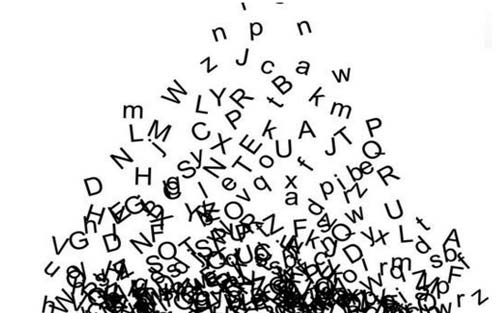想要学好英语,最重要的就是对词汇的掌握。其次就是单词的词性,同学们也需要准确的把握,这样在使用单词的时候才不会犯错。下面小编告诉你英语特殊动词的用法,大家一起来看看吧!
英语特殊动词的用法:
be的一种特殊用法
在新课标人教版选修六第5单元中,有这样一个句子:I’ll never forget my first sight of an eruption. It was in the second week after I arrived in Hawaii. 第2句中的 was 是系动词无疑,但没有“是”的意思。那么,在这里是什么含义呢?回答这个问题,首先要搞清楚主语It指代什么。显然 It 指代上文的 eruption。既如此,was 应该是“发生”的意思,相当于 happened 或 broke out。

这就是动词be 的一个特殊用法,其主语往往是表示“事件”的名词,如:meeting, talk, lecture, report, discussion, match, game, party, concert, play, accident, eruption, event等。因此,上句译成汉语应该是:我永远忘不了我第一次看见火山喷发时的情景,那(指“火山爆发”)是发生在我抵达夏威夷的第二个星期之后。又如:
---When was her birthday party? ---It was the night before last. 她的生日派对(聚会)是何时举办的?前天晚上。(was 等于 was held)
Our school sports meet will be next week. 我们学校的运动会将在下周举行。(be等于take place)
It was reported that the accident was on Tuesday and five people were killed. 据报道事故发生在星期二,有五人丧生。(was等于happened)
This is when small amounts of gases in the atmosphere, like carbon dioxide, methane and water vapor, trap heat from the sun and therefore warm the earth. (选修6第四单元,Reading) 这种现象(温室效应)发生在大气层中少量的气体,如二氧化碳,甲烷,水蒸气等,吸收太阳的热量,因而使地球变暖的时候。(is等于takes place)
下列两句很有意思,一字之差,但意思相差甚远。请比较:
It was Sunday. We went out for a picnic.
It was on Sunday. We stayed at home and didn’t know anything about the accident.
有人把 It was Sunday. 和 It was on Sunday. 混为一谈,认为意思没什么区别。其实,这两个句子的含义大不一样。前者译为“时间是星期天”,It 指时间;后者译为“事情发生在星期天”,It 指某个事件。
一般说来,be 表示“发生”意义时,除了它的主语表示“事件”概念外,还往往有一时间状语跟它连用。
make的语法与搭配:
1. 用作使役动词,表示“使”,后接不定式的复合结构作宾语时,不定式不能带 to;但是,若make为被动语态,则不定式必须带to。如:
Though he had often made his little sister cry, today he was made to cry by his little sister. 虽然他曾经常把他小妹妹弄哭,但今天他被他小妹妹弄哭了。
注意,若make不表示“使”,而表示其他意思则情况不同,比如下面两句,make后的不定式不是宾语补足语,而是目的状语:
We make candles to give light. 我们做蜡烛照明。
He made a box to put his money in. 他做了个盒子来装钱。

2. 其后除可接不带to的不定式作宾语补足语外,还可以接以下成分:
(1) 接过去分词作宾语补足语。如:
He tried to make his ideas known. 他设法让别人知道他的想法。
She had to shout to make herself heard. 她必须大声喊才能让人听见她说话。
注意,其后通常不接现在分词作宾语补足语。如:
他让司机在外面等他。
误:He made the driver waiting for him outside.
正:He had the driver waiting for him outside.
(2) 接形容词作宾语补足语。如:
Have I made myself clear? 我的意思说清楚了吗?
We’ll do our best to make you happy. 我们会尽一切努力使你幸福。
(3) 接介词短语作宾语补足语。如:
Sit down and make yourself at home. 请坐,不要拘束。
3. 有时可用作连系动词,表示“成为”“变成”等。如:
She would have made an excellent teacher. 她本可以成为杰出的教师。
That will make a good ending to the book. 那就成了这本书很好的结尾。
4. 以下各表达中的 make 在译成中文较灵活,需注意:make tea(泡茶),make money(赚钱),make the train(赶上火车),make the party(参加聚会),make 20 miles in an hour(一小时走20英里),等。
5. 用于“be made+介词”:
(1) 比较 be made of 与 be made from:两者均表示“由……制成”,但前者通常表示在制成品中还看得出原材料,而后者则通常表示在制成品中看不出原材料。如:
The chair is made of wood. 这椅子是用木头做的。
Some paper is made from wood. 有些纸是用木头做的。
但是,在现代英语中有时不完全按此区分。
(2) 比较 be make out of 与 be made into:前者表示“由……制成”,后者表示“制成……”。两者有时可互换,并且根据情况也可与上面两个句型互换(注意词序的变化)。如:
Rice can be made into wine. 米可以酿成酒。
Wine can be made out of [from] rice. 酒可以由米酿成。
动词miss的两条重要用法:
1. 表示错过或避免做某事,其后习惯上接动名词作宾语,不接不定式。如:
I just missed burning my hand. 我差点把手烫了。
He narrowly missed being seriously injured. 他差点受了重伤。
表示怀念做过的某事,其后习惯上也接动名词作宾语,不接不定式。如:
I miss living in the country. 我怀念以前住在乡村的日子。
I miss you bringing me cups of tea in the mornings! 我常怀念早晨你给我送茶的情景!
2. 表示“丢失”,通常用其现在分词(转化为形容词)作表语或定语。如:
The book has two missing pages [two pages missing]. 这本书缺两页。
The child has been missing for a week. 这孩子下落不明已有一周了。
注意不能用过去分词转化来的形容词,如:
误The child has been missed for a week.
remain的六条重要用法:
1. 表示“剩下”“留下”“尚需”等,均为不及物动词,因此不能跟有宾语,也没有被动语态,并且一般不用于进行时态。如:
地震之后,没剩几座房子。
误:Few houses were remained after the earthquake.
误:Few houses were remaining after the earthquake.
正:Few houses remained after the earthquake.
2. 由于是不及物动词,所以类似下面句子中的that从句不是宾语从句,而是修饰其前the fact的同位语从句。如:
The fact remains that she was lying. 事实是,她说的是假话。
类似地,下面一句中的of the castle不是与remain搭配,而是与其前的a few stones搭配:
Today only a few stones remain of the castle. 今天这座城堡只剩下几块石头。(=Today only a few stones of the castle remain.)
3. 由于是不及物动词,所以用于名词前作定语时,不能用过去分词,而应用现在分词(相当于形容词)。如:
The remaining students will serve as audience. 剩下的学生将充作听众。
比较:You may have all those that remain. 剩下所有的都归你。
He drank up the water that remained in the jug. 他把瓶里剩下的水喝完了。
4. 其后可接不定式,根据意思的需要选用主动或被动。如:
Nobody remained to help him. 没有人留下来帮助他。
Much remains to be done. 要做的事情还很多。
Whether it will do us harm remains to be seen. 是否对我们有害还要看一看。
5. 与 there 连用,构成类似于 there be 之类的句型。如:
There remained in the village only women and children. 村里只剩下妇女和儿童。
There remained just a little food. /There’s just a little food left. 只剩下一点点食品了。
6. 用作连系动词,意为“(继续)保持”“仍处于(某种状态),其后可接名词、形容词、分词、介词短语等。如:
He remains poor [a poor man]. 他仍然很穷。
She remained sitting [seated]. 她一直坐着。
There she remained under the care of Aunt Liu. 在那里她 一直受到刘大娘的照顾。
与“英语特殊动词的用法”相关文章
赞(0)
12
12
分享:

